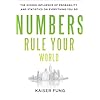Well, R is definitively here to stay and made its way into the data science tool zoo. For me as a statistician, I often feel alienated surrounded by these animals, but R is still also the statistician’s tool of choice (yes, it has come to age, but where are the predators ..?) What was usually […]
Each year after the group stage, there is the much awaited drawing of the eighth-final, which essentially defines a team’s fate. So far the thing is not too complicated, as there are 16 teams out of which we need to generate 8 games – no problem if it would be possible to draw the teams without […]
The gap of the new “digital divide” between those who only use computers when they are as easy to use as iPads and smartphones and those who like (or at least accept) to type commands to perform jobs, seems to get bigger and bigger. R – the lingua franca of statistical computing – is exactly […]
I feel ashamed for this boring title, but hope that the entry can make up for it. This visualization did inspire me, as a comment did point to my Tour de France visualizations. As with all visualizations, we need data first – this sounds trivial, but is sometimes a frustrating show-stopper. After I found the […]
Posted on 01/30/2011, 18:55, by martin, under
General,
R.
The new issue (Vol. 21, No. 2) is out now. Featured articles are: barNest: Illustrating nested summary measures by Jim Lemon and Ofir Levy You say “graph invariant,” I say “test statistic” by Carey E. Priebe, Glen A. Coppersmith and Andrey Rukhin Computation in Large-Scale Scientific and Internet Data Applications is a Focus of MMDS 2010 […]
There is this beautiful graph created by the facebook intern Paul Butler showing all (?) connections between facebook accounts: Paul’s article is called “Visualizing Friendships“, which I would more call “Visualizing connections between facebook accounts”, but that is probably a different matter. Although this is a beautiful piece of artwork, from a statistical point of […]
I recently stumbled upon an old paper of a presentation I gave at the Interface conference in 1998, entitled “JAVA – the next Generation of Statistical Computing?”: It is very interesting to compare the things I envisioned 12 years ago and what actually came true. Here are some topics: Did Java change a whole lot […]
Peter Huber referred to “the rawness of raw data”, a kind of data we would not expect to find in a textbook. The book of Fahrmeir and Tutz on multivariate modelling refers to the visual impairment data from Liang et al., 1992 in table 3.12: Nothing wrong here at first sight; but how would you […]
I never thought I would ever embed videos from FOX on my blog, but this one needs to be covered: Watch the latest business video at video.foxbusiness.com Watch SPSS co-founder Norman Nie talking about the “… unbelievably powerful open source language called R …” and “… I am not sure that SPSS is our biggest […]
R did definitely not start to be THE statistical computing tool. The “two Rs” in far down-under just needed some tool which was not too expensive and structured enough to support the elementary statistics classes filled with hundreds of students. Another constraint was the computing lab which was large enough, but “only” filled with Mac […]
It is just about a year ago (exactly January 6th, 2009) that a New York Times article on R did fuel the dispute on what statistical analysis tool is “the best”. One of the highlight of the article was a quote from SAS’ Anne H. Milley: “I think it addresses a niche market for high-end […]
Posted on 04/29/2009, 19:51, by martin, under
R,
Tools.
As we are used from UNIX. there is not one single suitable solution to solve a problem, but usually a few different ways to do “the same”. Depending on what commands we know (best), we will chose the one or the other solution. Only the absolute expert will be able to choose the most efficient […]



